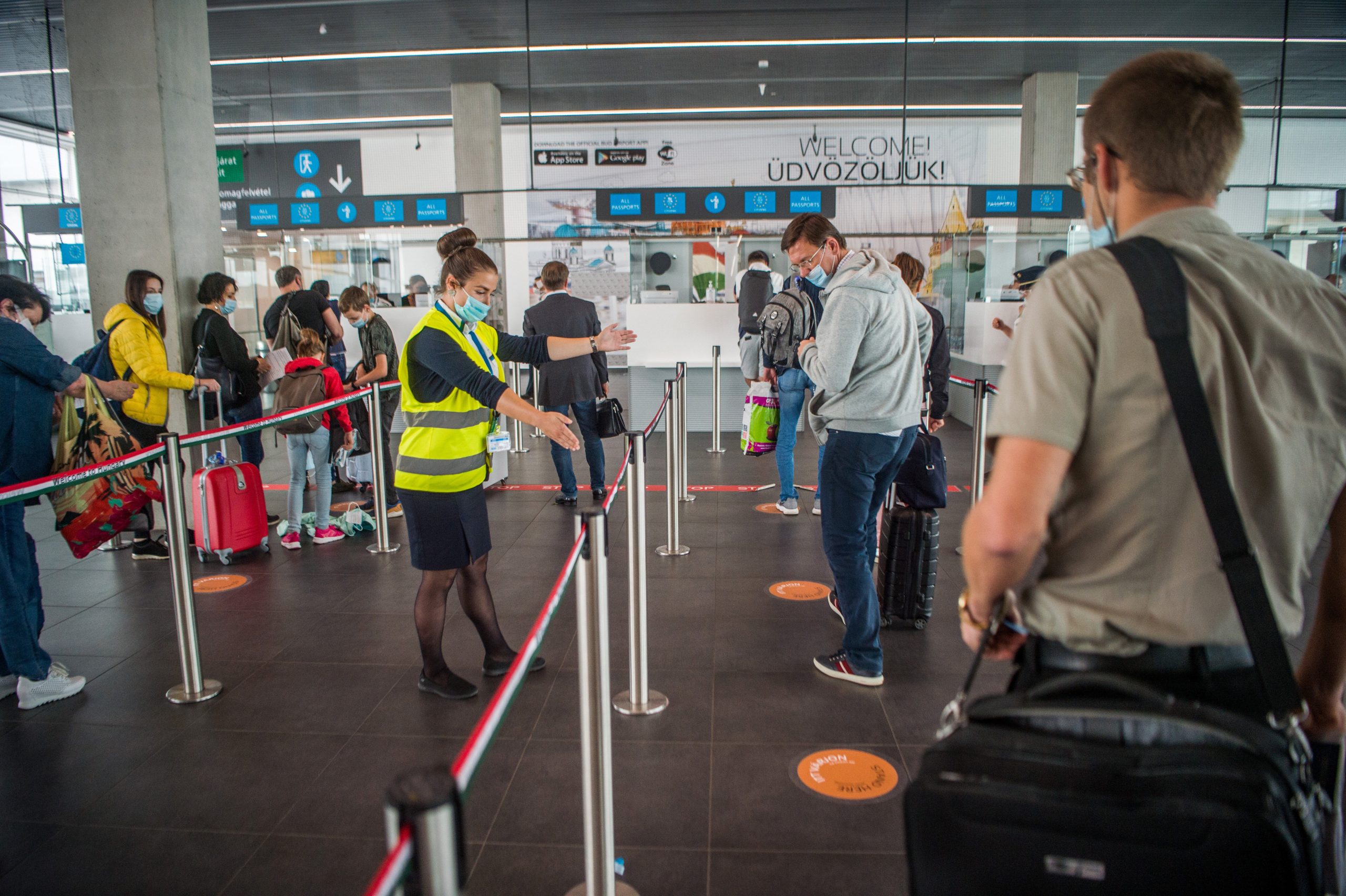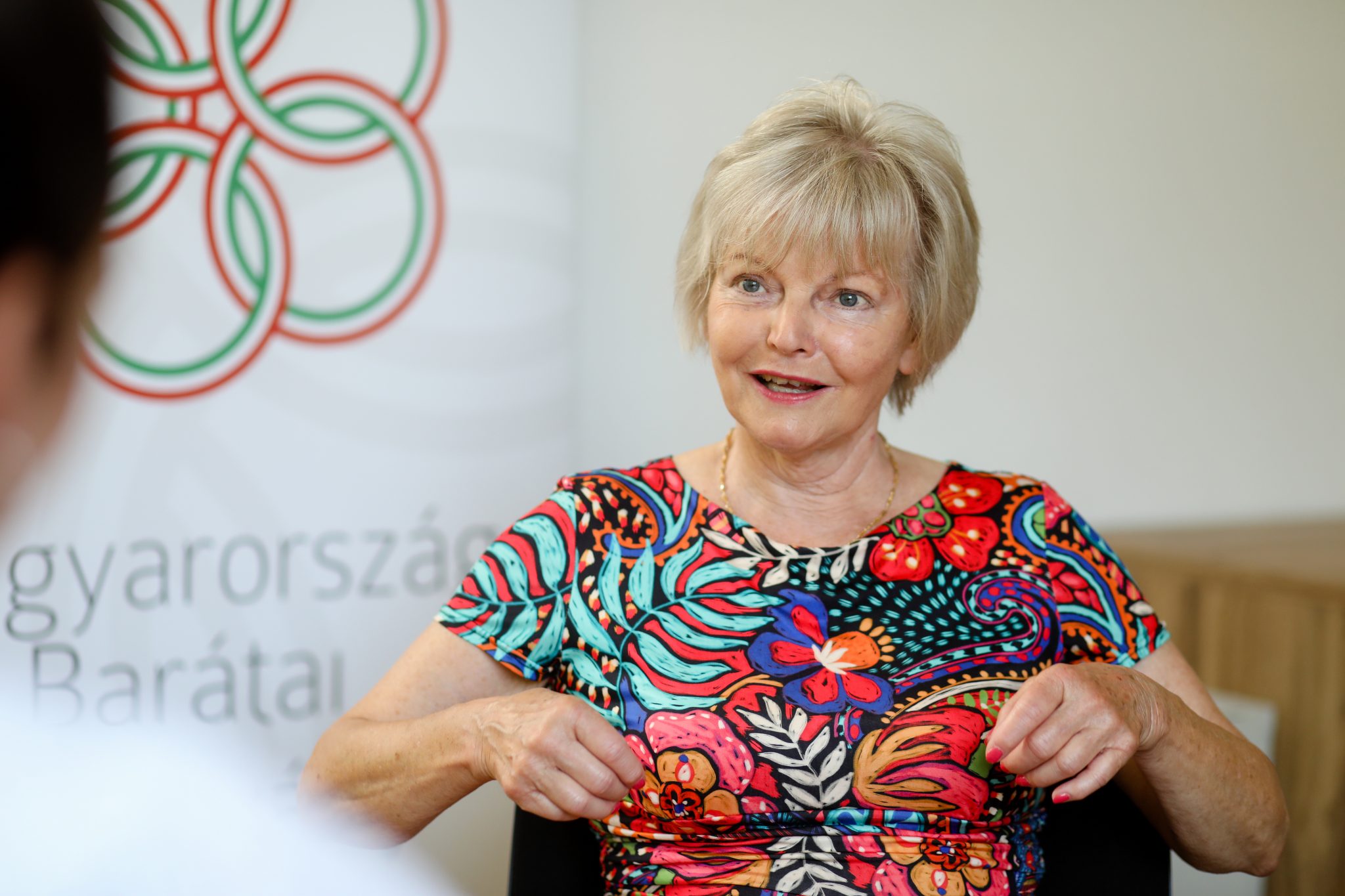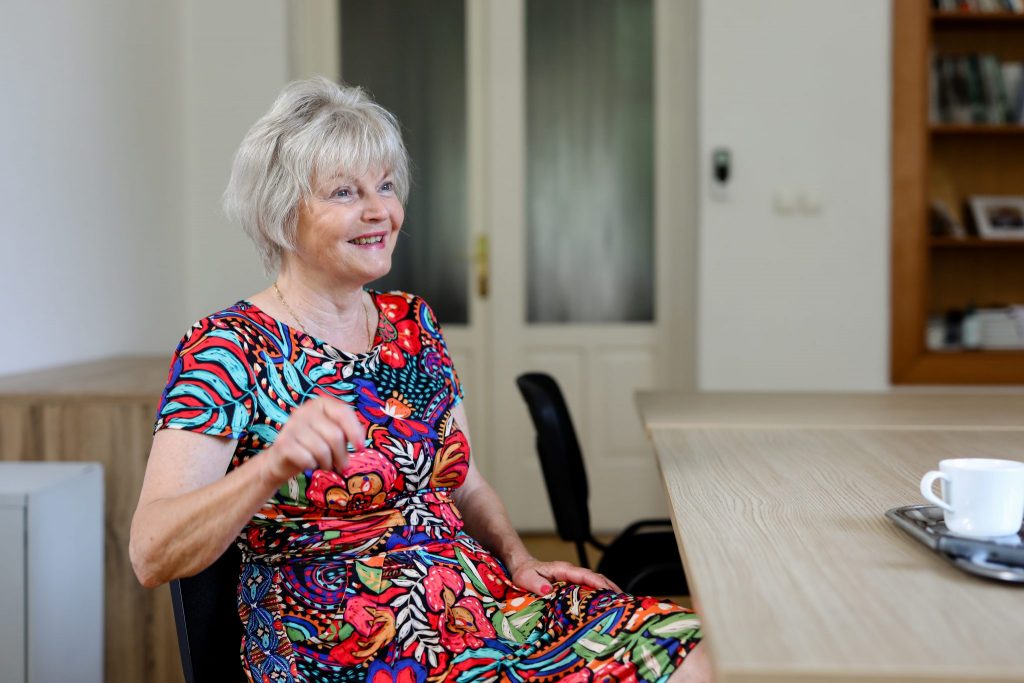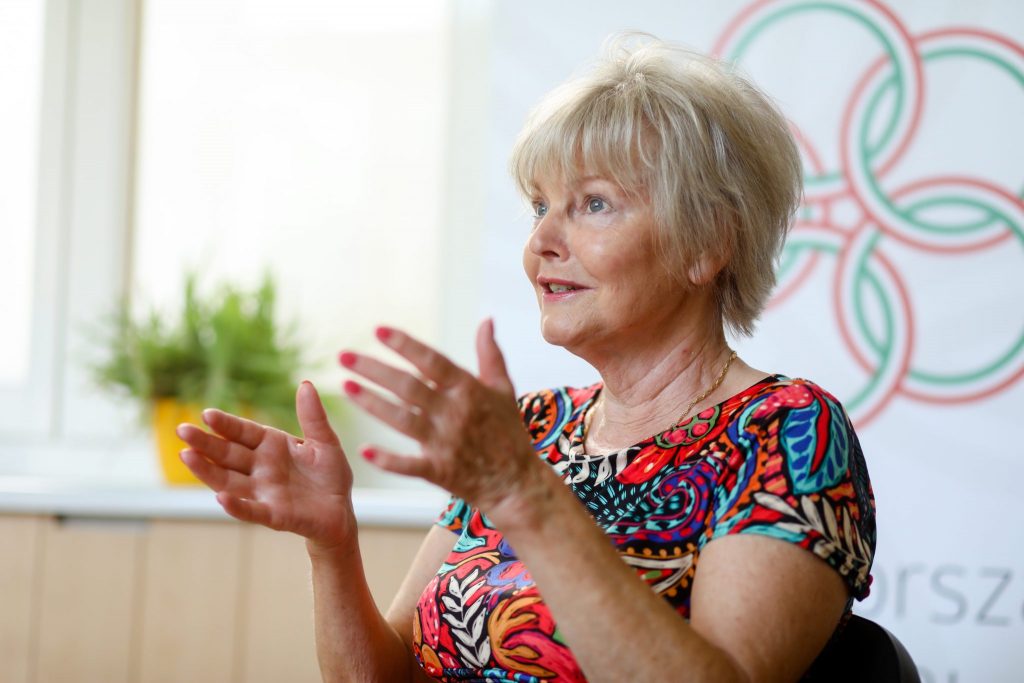
The EU pass will allow unrestricted travel for citizens anywhere in the Union, but there are certain conditions for accessing it. Hungary made the EU document accessible Wednesday evening both digitally and physically.Continue reading

She emigrated to Hamburg in 1979. She says she misses the Hungarian summers the most and it was difficult for her to get used to the rainy weather in North Germany in the beginning. Today she is the leader or important member of several Hungarian organizations in Germany, and for her work, she has received the “Friend of Hungary Award.” Among other things, the nomination states that “she is always there when a Hungarian in Germany gets into trouble.” I also asked Annamária Friedrich-Ireghy why the German news reports about our country are one-sidedly negative, and whether she plans to move home to Budapest at some point. Since we are old acquaintances, we were on a first-name basis during our conversation. Interview.
You were able to return to Hungary after 10 months. How does it feel to be home?
It’s indescribable and incredible at the same time. When I left I kept saying that I would only believe I had finally made it home when I was actually here.
Was traveling difficult because of the pandemic?
Not at all. Apart from the fact that an acquaintance told me a few days before departure that I had to get an additional paper from the family doctor. With the ’international yellow vaccination booklet’ I could enter the country without any problems, they were very nice, everything went smoothly. Right after arrival, I filled out the request for the certification of the vaccination card. My Hungarian immunity card arrived very quickly.
Our readers in Germany are looking forward to traveling to Hungary again. What have you experienced in your environment? Was there or is there impatience regarding the Hungarian travel conditions?
This question is also relevant for us right now: my husband is a German citizen. He will arrive here a few days later and has to show our marriage certificate. But we also have close friends who live together as a German-Hungarian couple but are not married. They don’t know yet how to come to Hungary. (We recorded the conversation on June 21st – editor’s note).
How did Germans manage to endure the coronavirus and having to quarantine? We consider Germans to be very rule-abiding, disciplined people: do you see any difference in the attitude of the two nations?
During the period of the first lockdown when I returned from here on March 5th, the pandemic broke out. I was also locked away from everything for a few months until June. At that time, everyone still believed that the coronavirus would disappear quickly so everyone stayed very disciplined until the end. Then came the summer, the greater freedom. What made it hard is that everyone faced something unknown, not visible. Neither politicians nor virologists could see where everything was going. Naturally, people tend to believe what is more comfortable for them, so the summer was more liberated. Then came another autumn lockdown, first a partial, then a complete one from December to the end of May. I was no longer able to fly here either. My husband could just about make it, but I couldn’t.
Of course, he sent beautiful photos of the smooth mirror-like surface of Lake Balaton and I was annoyed because I could not travel. I love the Balaton very much… in the end, I couldn’t make it to Hungary since August of last year until now, June 12th, but now I am finally back home.”
Perhaps in Germany there were more and more violent demonstrations against the lockdown. But you can see in both places that the pandemic no longer exists for young people, despite the Delta variant still spreading.
It’s summer again, and you emphasized in our earlier conversation that if you had to name something that you’re missing from Hungary, that is summer. Why is summer different here?
Although global warming affects everything, I still remember my first summer in Hamburg in 1978. In the first three days, the weather was still beautiful, as it is here right now. But on the first day, I already found it strange that I had to search in vain for restaurant and café terraces- they simply didn’t exist. When it started raining on the third day and didn’t stop for the next 40 days, then I realized. The weather has gotten better since then, but there’s still no summer like here. And although it was recently hot in Hamburg as well, my husband just wrote this morning: 10°, rain (We recorded the conversation on June 21 – editor’s note). In moments like these, I am especially happy to be here.
Apart from the weather, what memories did you take with you in 1978?
Lake Balaton. I love the Balaton. I also met my husband there. At the time I was studying hospitality in college and was there for an internship when we met.”
Then I was in the GDR [East Germany] to learn German. We spoke English to each other in the beginning and I wanted to learn German. Lake Balaton is indescribable. We have our little summer kingdom in Alsóörs, small house, big property, a lot of work. Although there are also beautiful lakes and landscapes elsewhere, for example Lake Constance or the area around Hamburg, Lake Balaton is completely different. When I sit outside in Alsóörs, the lake below me, that is such a huge pleasure… apart from the mosquitoes of course…(laughs).

Photo: Zita Merényi
You’ve been living in Germany for more than 40 years and you don’t have an accent in your Hungarian language. How were you able to maintain your language like that, especially with a German husband?
On the one hand, I travel home regularly. On the other hand, I was 22 years old when I left Hungary. If I had an accent in my mother tongue then I would be very ashamed. The most natural thing was also to speak Hungarian with my son. I don’t understand parents who deprive their children of this opportunity. Especially not when the mother herself does not even know the given foreign language perfectly.
Instead of teaching their mother tongue decently, they speak bad German with their children.”
Your son speaks Hungarian well. Does he also feel connected to the country?
Yes, of course, I spoke Hungarian with him and surely there was a time when he used funny bilingual phrases. Then, when he grew up and could fly alone, he often traveled to his grandmother’s house.
They watched movies together and he learned a lot about Hungarian culture and literature from my mother and through his travels within the country. So his connection to his Hungarian roots was there from an early age.”
Later he also went to university here, he did his master’s here, and then he worked at a German foundation. From there he went to India and now lives in Germany again. He doesn’t have an accent, but he does use Germanisms.
Is either of you planning to move to Hungary at some point? I’m not sure whether it is an option with a German husband….
The German husband would have moved away years ago, to wherever (laughs). But I don’t want to give up the dual residence life.”
Both countries have their advantages, but there are many things that annoy me about both Germany and Hungary. But wherever I am at the moment, there is always only joy and I enjoy the present country. But, when I say I am going home, I always mean Budapest. My home will always be Budapest.
One of the reasons for our conversation is that last year you received an award from the “Friends of Hungary” Foundation. Because of the epidemic, you will only receive the award this September. The nomination states, among other things, that “you are always there when a Hungarian in Germany gets into trouble.” Where and what kind of help did you give the last time?
During the Corona period, life came to an absolute standstill. Thus there were no requests.
Until now, the way it worked was that Hungarians who needed help, the police, or hospitals, contacted the Honorary Consulate. The consulate contacted me, as president of the Association of Hungarians in Hamburg. Most of the time I helped with interpreting.”
Two of the toughest cases happened before the Covid pandemic. The first was a student who was hospitalized after a suicide attempt. I was on a trip 30km from Hamburg. A police car came for me and took me all the way to Hamburg with sirens blaring. The second case involved a „call girl” who wanted to see her five-month-old dead infant after a miscarriage. A hospital called me, and I spent two days in a room with a five month old deceased fetus.
You are active in numerous Hungarian organizations: president of the Association of Hungarians in Hamburg, vice-president of the German-Hungarian Society, and member of the board of ‘BUOD’, which unites Hungarian organizations in Germany. What tasks do these organizations perform?
I will start with the simplest and at the same time oldest one. In 1908, the “Association of Hungarians in Hamburg” was founded.
It is often said that Hungarians who wanted to travel to America had such a good time on the Reeperbahn that they missed their ship. This sounds good, of course, but in fact Hungarian businessmen founded the Hungarian club.”
This became the “Association of Hungarians in Hamburg.” We try to organize different programs. Besides, we try to help Hungarians living here or coming here to establish new relationships. When the labor market opened up with the accession of the EU, a greater need presented itself for this.
Many emigrated to work, for example in a meat factory. Or people doing heavy physical work who often got into trouble. For example, they did not receive their wages or too little, or they worked in undignified conditions, etc.”
So we don’t just have cultural activities. But first and foremost we are a cultural association. We give lectures, organize events, barbecues in the city park, and we also bring lecturers from Hungary.
Is this primarily for Hungarians? Or are there also small ambassadorial tasks in it? Is your goal also to improve the image of Hungary, and if so, how difficult is this to do?
Definitely difficult. In recent years, it has become difficult to the point of “I give up.” Especially when there are also Hungarians here who spread negative news about the country.
I have a colleague who is convinced this is a dictatorship here. And you can’t convince her otherwise.”
I am already happy when we do not appear in the news. In the club and also in private we try to do everything: in private conversations, or in the form of lectures.

Photo: Zita Merényi
Not only does our history connect us, but also our economic relations are very close to this day. In your opinion, this a general anti-Hungarian mentality or is it simply against the current political course?
It’s not against Hungary in general, but it still backfires. It’s more against the political leadership.
There is a great deal of falsehood to it, although sometimes we give ammunition to the critical attacks. Often we ask ourselves, is it worth fighting? But then we say, even though we don’t know if it’s worth it, we still continue to do so.”
But many Germans like us too. Just to share a recent experience: After the book presentation of a Hungarian-German organization in Budapest, the „Hungarian-German Institute for European Cooperation,” we watched the Hungarian-German football match on a big screen.
I was sad and disappointed that the Hungarian team couldn’t advance after such a performance. But I really appreciated the attitude of my German acquaintances, how they expressed their appreciation of the national team’s performance and how sorry they were for the undeserved relegation. I received many calls and messages during the night.”
Maybe we can say that our foundation is an inversion of your association: we try to keep the Hungarians together who are separated from Hungary. This year is the 10th anniversary of the Friends of Hungary Foundation, of which you have been a member since the beginning. What do you think is the greatest achievement of the organization?
It is good that we can communicate with German members here as well and share our experiences.
The foundation already does a lot by running news sites (‘Ungarn Heute,’ ‘Hungary Today’). They regularly provide people with information.”
In addition, the greatest virtue, in my opinion, is balancing the “Hungarian division” in society. Of course, every society is divided, even the German and French societies. But somehow here, for example in the public discourse, it is more noticeable. And the foundation strengthens the very idea that we Hungarians should unite on a global level. None of us, no foreign Hungarian organization, would be capable of such world-embracing cohesion.
Featured photo by Zita Merényi